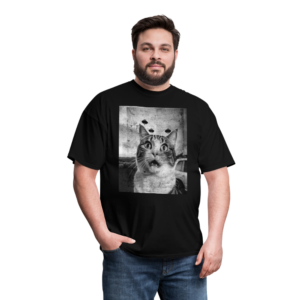Free shipping over $50 for the month of April using code aprilship
Kurt Cobain wasn’t just a musician—he was a cultural shift. In the early ‘90s, when hair metal ruled the charts with blistering solos and polished production, Cobain stepped in with his raw, unpolished style and shattered the rulebook. His guitar playing wasn’t about technical mastery; it was about feeling. He made millions of kids believe that they didn’t need expensive gear or years of formal training to make great music.
Cobain’s technique may have been unconventional, but that’s what made it groundbreaking. His influence reshaped music, inspired legions of musicians, and continues to resonate today. Let’s dive into what made Kurt Cobain a legend, how he influenced the world of music, and why his legacy remains untouchable.
Cobain’s Technique: Simplicity as a Weapon
Kurt Cobain’s guitar playing wasn’t flashy, and that’s exactly why it worked. In an era dominated by virtuoso guitarists who could shred at lightning speed, Cobain stood out by keeping things simple. His playing was raw, emotional, and, above all, real.
Here’s what defined Cobain’s technique:
- Power Chords Galore: Cobain’s bread and butter was the power chord—a two- or three-note staple of rock music. But he used them with a sense of rhythm and melody that elevated his playing. Listen to tracks like “Smells Like Teen Spirit” or “Come As You Are,” and you’ll hear how he turned basic power chords into unforgettable anthems.
- Drop D Tuning: Cobain frequently used alternative tunings, like drop D, to give his riffs a heavier, grungier sound. This tuning made it easier to play power chords and created a darker tonal quality that became synonymous with Nirvana’s music.
- Unorthodox Solos: Cobain’s solos weren’t about technicality—they were about expression. His solos often mirrored the vocal melody or played with dissonance and feedback. Tracks like “In Bloom” and “Lithium” showcase his knack for crafting solos that are as simple as they are effective.
- Dynamic Contrasts: One of Cobain’s signature moves was his use of quiet verses followed by explosive choruses. This loud-quiet-loud dynamic created a sense of tension and release, pulling listeners into the emotional core of his music.
- Grungy Tone: Cobain’s tone was gritty, distorted, and unapologetically raw. He relied on inexpensive gear—like his Fender Mustang and Jag-Stang guitars and his Electro-Harmonix Big Muff pedal—to create a sound that was both chaotic and controlled.
Cobain’s technique was a rebellion against the flashy, overproduced music of the time. He proved that imperfection could be perfect and that emotion always trumps precision.
Why Cobain’s Playing Was Groundbreaking
Before Nirvana, rock music had become bloated with excess. Cobain stripped it down to its essentials—emotion, melody, and raw power. He made music that was accessible to everyone, both in sound and spirit.
Cobain’s playing was groundbreaking because it redefined what it meant to be a “great” guitarist. He wasn’t trying to impress anyone with technical wizardry. Instead, he focused on songwriting and creating an emotional connection with his audience. His riffs were memorable, his chord progressions were deceptively simple, and his melodies stuck in your head like glue.
Cobain’s approach to guitar wasn’t just about playing—it was about expression. He used feedback, distortion, and noise as tools to communicate his angst and frustration. His guitar wasn’t just an instrument; it was an extension of himself, a weapon he wielded to challenge the norms of rock music.
Who Tried to Mimic Cobain?
Kurt Cobain’s influence on guitarists is monumental. After Nirvana’s explosion onto the scene, a wave of grunge and alternative rock bands emerged, many of them borrowing heavily from Cobain’s style.
- Billy Corgan (Smashing Pumpkins): Corgan was influenced by Cobain’s use of heavy distortion and dynamic contrasts, though he blended it with his own layered, atmospheric style.
- Dave Grohl (Foo Fighters): As Nirvana’s drummer, Grohl absorbed Cobain’s songwriting approach and carried it into his guitar-driven work with Foo Fighters, emphasizing simplicity and raw power.
- Courtney Love (Hole): As Cobain’s wife and fellow musician, Love shared his penchant for distorted guitar tones and emotionally raw songwriting. Hole’s albums, particularly Live Through This, carry echoes of Cobain’s influence.
- Mark Hoppus (Blink-182): The pop-punk explosion of the late ‘90s owes a debt to Cobain’s use of catchy melodies paired with gritty guitar riffs. Bands like Blink-182 borrowed heavily from his songwriting formula.
- Jack White (The White Stripes): White’s stripped-down approach to guitar and his emphasis on raw, emotional playing have clear parallels to Cobain’s ethos.
Even beyond the grunge scene, Cobain’s influence can be felt in genres like punk, indie rock, and emo. His DIY attitude and emotional honesty have inspired countless musicians to pick up a guitar and start creating.
Cobain’s Impact on Music Then and Now
When Nirvana’s Nevermind dropped in 1991, it didn’t just change music—it changed culture. The album knocked Michael Jackson’s Dangerous off the top of the charts, signaling a shift in mainstream tastes. Cobain became the reluctant voice of a generation, and his music spoke to the disenchanted youth of the ‘90s.
Cobain’s impact on music is immeasurable. He helped bring grunge to the forefront, paving the way for bands like Pearl Jam, Soundgarden, and Alice in Chains. But his influence didn’t stop there.
Cobain’s raw, unpolished approach inspired the lo-fi aesthetic of indie rock bands like Pavement and Guided by Voices. His emphasis on emotion over perfection can be heard in the emo and post-punk revival scenes, with bands like Brand New and Interpol carrying the torch.
Even today, artists like Billie Eilish and Post Malone cite Cobain as an influence. His ability to channel vulnerability and authenticity into his music has become a blueprint for modern songwriting.
How Cobain’s Legacy Lives On
Kurt Cobain’s music remains as relevant today as it was in the ‘90s. Nirvana’s songs are still staples of rock radio, and their albums continue to sell millions of copies. But Cobain’s legacy goes far beyond record sales.
Cobain inspired a generation to embrace their flaws and express themselves authentically. His DIY ethos encouraged musicians to focus on passion and creativity rather than technical perfection.
Cobain’s life and music are a reminder that art doesn’t have to be polished to be powerful. His influence can be felt in everything from punk rock to pop music, proving that his legacy is timeless.
The Final Note: Thank You, Kurt
Kurt Cobain didn’t just change music—he changed lives. His ability to capture the angst, pain, and beauty of the human experience in three-minute songs is nothing short of genius.
For those of us who grew up playing guitar in our bedrooms, Cobain was a hero. He made us believe that we didn’t need to be perfect—we just needed to be real.
So, here’s to Kurt Cobain, the anti-hero who redefined what it means to be a rock star. Pick up your guitar, turn up the distortion, and play with all the emotion you’ve got. Because if Cobain taught us anything, it’s that music isn’t about perfection—it’s about connection.
Thank you, Kurt. You’ll never be forgotten.
------------------------------------------------
We use AI GPT Chatbots to help with our content and may get some things wrong.
-------------------------------------------------









